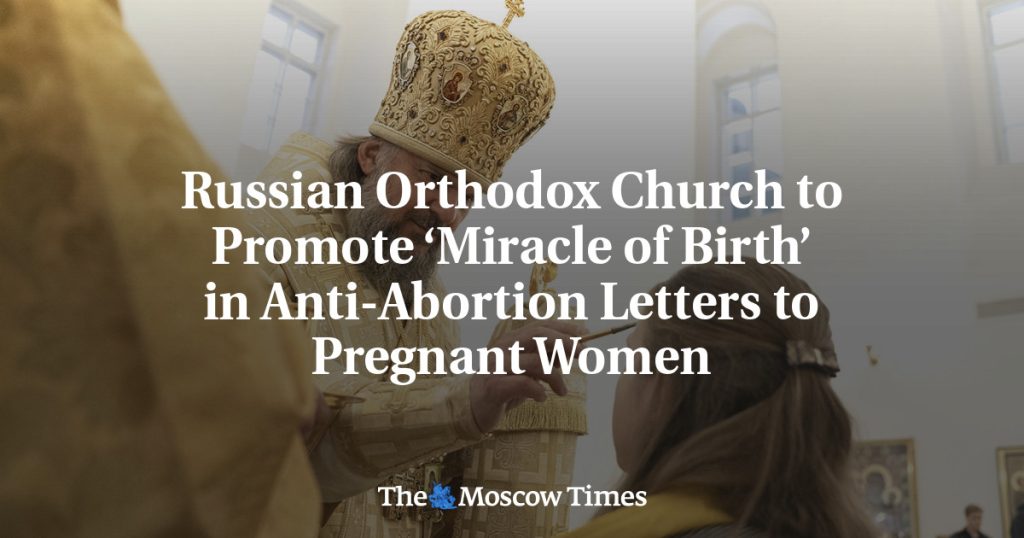The Russian Orthodox Church in the Tver region is planning to send letters to pregnant women, urging them to choose giving birth over having an abortion. The letter, written by Metropolitan Ambrose of Tver and Kashinsk, aims to support women facing a difficult decision about their pregnancies. It emphasizes that women are not alone in this process and that God, the church, and society stand with them. The church sees the act of bearing children as a sacred sacrament and wants to offer support to pregnant women, particularly those who are Orthodox Christians.
The Tver diocese has stated that these letters will be primarily distributed to Orthodox future mothers in the region, with the possibility for others to access them as well. While there are no prohibitions for people of other religions to receive the letters, the focus will be on Orthodox Christians. It is part of a broader effort in various Russian regions to discourage abortions and promote higher birth rates. Tver, along with other areas, has introduced fines for pressuring women into having abortions and banning social media content that promotes the “childfree ideology.” These initiatives are part of a larger strategy to address Russia’s demographic crisis and boost population growth.
The issue of abortion is a sensitive and complex topic in many societies, including Russia. The Orthodox Church’s stance on abortion reflects its belief in the sanctity of life and the importance of supporting women in their pregnancies. By sending out these letters, the church hopes to provide encouragement and guidance to pregnant women who may be facing difficult decisions. The church’s actions also tie into broader efforts to address demographic challenges in the country and promote higher birth rates as a means of sustaining and growing the population.
The Russian Orthodox Church’s involvement in issues related to abortion and birth rates intersects with broader social and political debates in the country. The church’s influence extends beyond matters of faith and spirituality, impacting social policies and public discourse. In this case, the church’s efforts to discourage abortion and promote childbirth reflect its role as a moral authority in Russian society. As a traditional and influential institution, the church’s views on these issues carry weight and can shape public attitudes and policies.
The challenges faced by independent journalists and media outlets in Russia, including The Moscow Times, highlight the importance of supporting free and open journalism in the country. As the state cracks down on independent voices and seeks to suppress dissenting opinions, it becomes crucial for individuals to stand up for press freedom and the right to access accurate information. By supporting independent media outlets like The Moscow Times, individuals can help uphold the principles of free speech and democracy, even in challenging political environments.
In conclusion, the Russian Orthodox Church’s initiative to send letters to pregnant women in the Tver region underscores the complex intersections of religion, society, and public policy in Russia. The church’s stance on abortion and childbirth reflects its values and beliefs concerning the sanctity of life and the importance of supporting women in their pregnancies. These actions also align with broader efforts to address demographic challenges and promote higher birth rates in the country. As individuals navigate these complex issues, supporting independent journalism becomes crucial in defending free speech and promoting democracy in challenging political environments.


